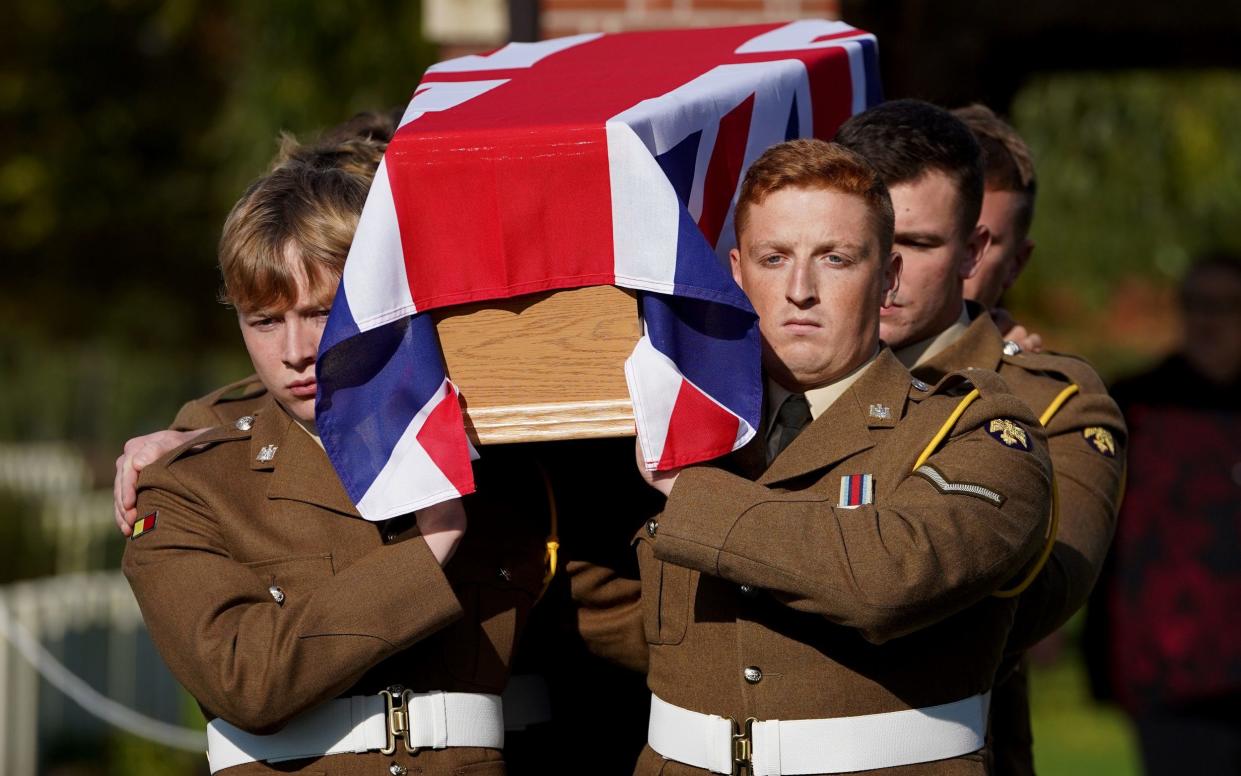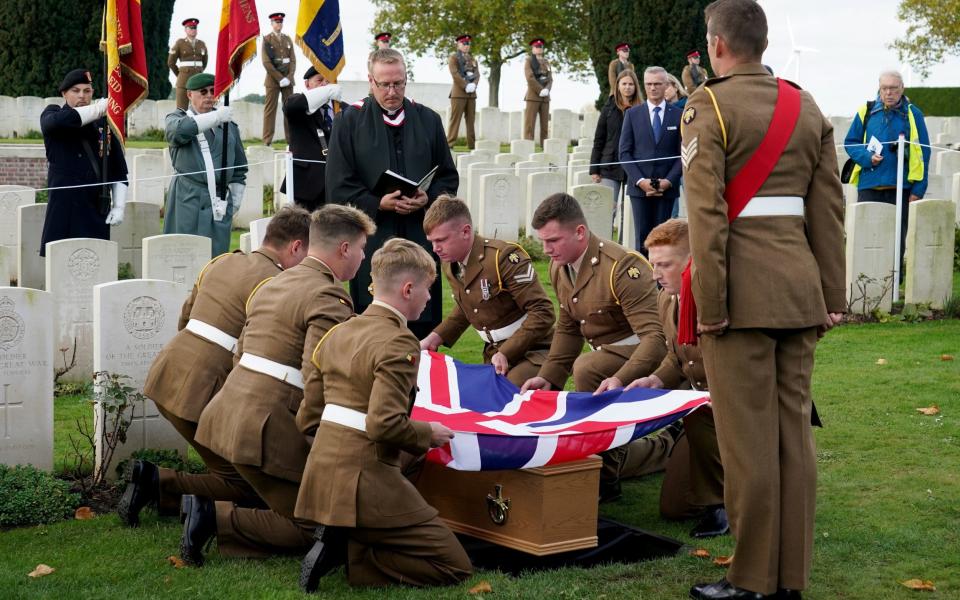First World War soldier finally buried 106 years after his death

A British soldier who died during the First World War has been laid to rest in Belgium after a DNA sample from his nephew helped detectives to identify him.
Lance Corporal Robert Cook received full military honours, including a gun salute, at a ceremony in Belgium on Wednesday, after his identity was confirmed by experts known as the "War Detectives".
The decorated soldier died aged 38 on May 2 1915, two days after arriving on the front line near Ypres, on the Western Front.
Born in Bishop Wilton, in the East Riding area of Yorkshire, L/Cpl Cook was one of seven children and served with 2nd Battalion The Essex Regiment.
He was buried at the Commonwealth War Graves Commission's New Irish Farm Cemetery, near Ypres, after being identified by the Ministry of Defence's Joint Casualty and Compassionate Centre.
His great-nephew and great-niece attended the service to pay their respects, laying wreaths beside his white headstone.

Fallen soldier given ‘dignity and respect that he is due’
Also present were members of C Essex Company of 1st Battalion The Royal Anglian Regiment, the modern equivalent of L/Cpl Cook's regiment.
Draped in a Union flag, L/Cpl Cook's coffin was carried to its final resting place by soldiers in full military dress.

Conducting the service, Reverend Paul Whitehead said: "Today, we accord L/Cpl Cook the dignity and respect that he is due.”
As the service drew to a close, the famous line from Laurence Binyon's poem For The Fallen - "we will remember them" - was read out and echoed by military and civilian guests.
After the service, Arthur Cook said he had been surprised to be contacted by a team from the Ministry of Defence requesting a DNA sample.
Asked about the service, he said: "To think that 105 years further on and they still put this effort into a burial is unbelievable, it's amazing."
He praised the "forensic" work of the MoD team and the Essex Regiment Museum in identifying L/Cpl Cook.
The team, known as the War Detectives, work to match names to remains of soldiers.
One of the team, Rosie Barron, said L/Cpl Cook was one of 24 soldiers whose remains were discovered near the site in 2014 and 2015.
She added: "He was found with a cap badge and shoulder titles of the Essex Regiment, and he also had a medal ribbon bar with three medal ribbons of South Africa medals, so we knew that this solider had served in the Boer War.
“Based on that, we were able to work out roughly how old he might have been.”

